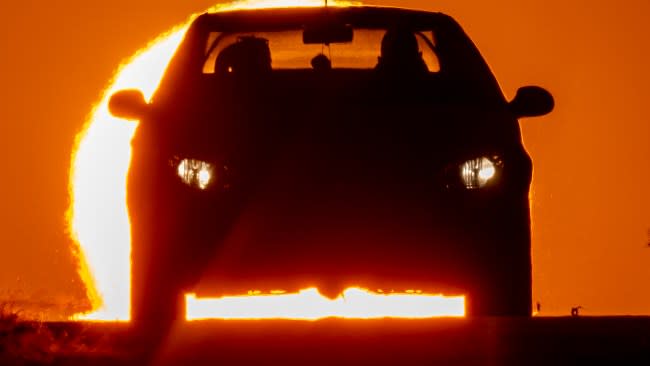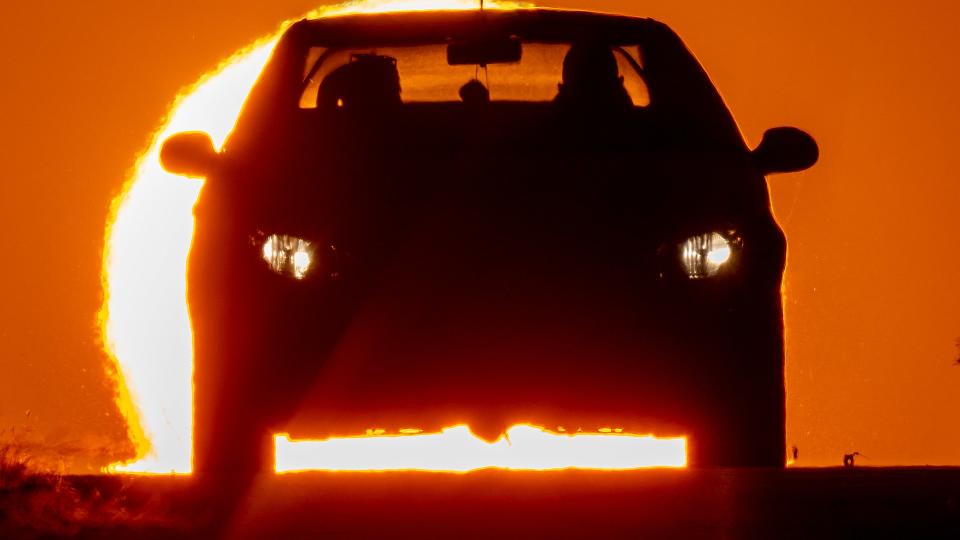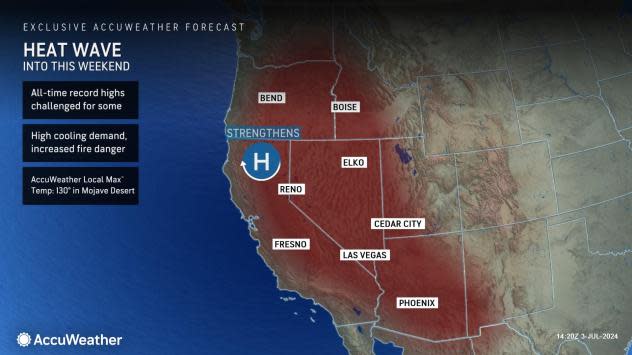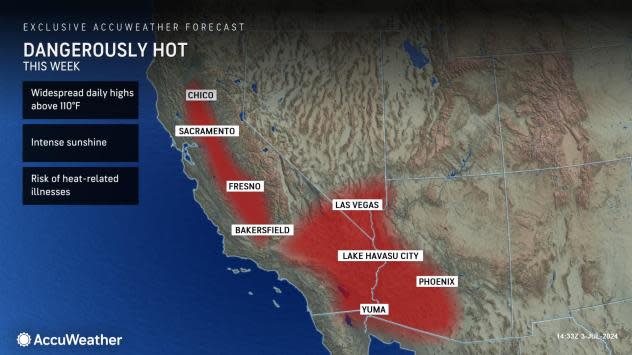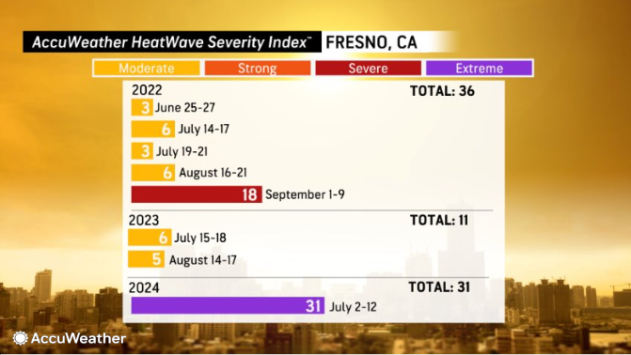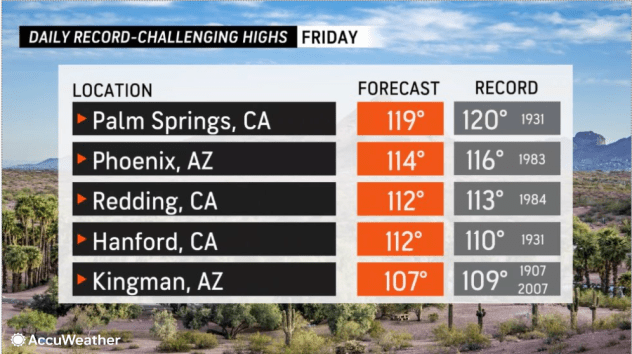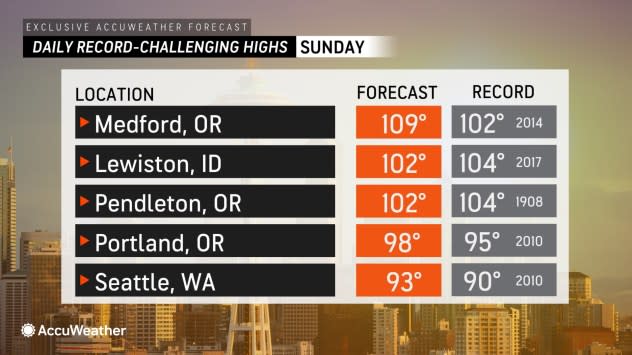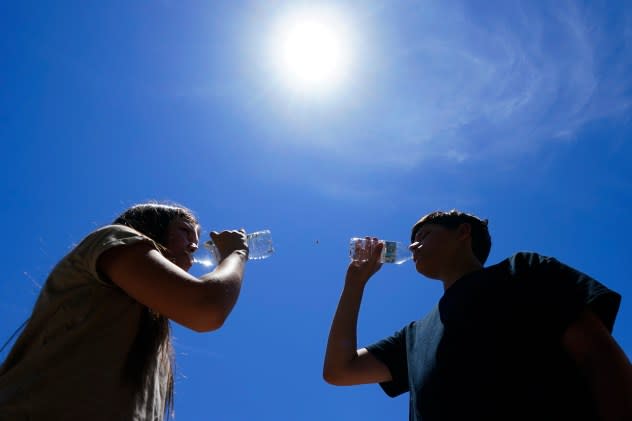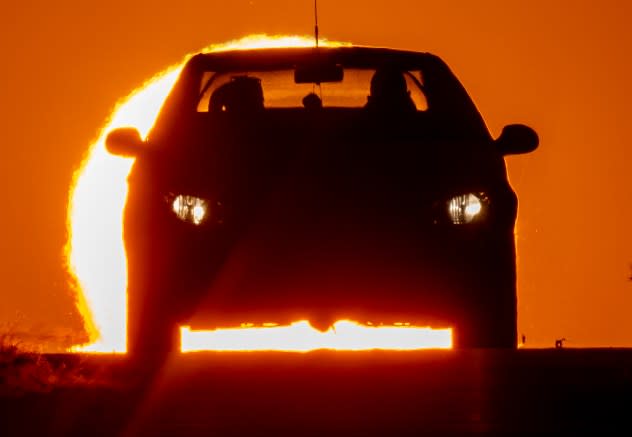Temperatures to challenge all-time highs in California, Nevada
While the summertime is quite hot across the interior of the western United States in the valleys, basins and deserts, the heat will soon go above and beyond what is typical. AccuWeather meteorologists continue to warn of dangerous heat that will build through at least the first weekend of July over the interior Southwest and into mid-July over the interior West.
"Extreme temperatures will crescendo into the weekend as a northward bulge in the jet stream strengthens over the region," AccuWeather Senior Meteorologist Heather Zehr said. "At its peak, afternoon high temperatures will be around 20 degrees above average in the worst-hit areas."
 |
This level of heat will not only challenge daily high-temperature records but will also make a run at some all-time record highs for the month of July and for any time of the year.
"The worst heat will be over the Central Valley of California, as well as the deserts of southeastern California, southwestern Arizona and southern Nevada," Zehr explained, "These places will see highs of 110 or more; the highest temperatures in Death Valley will be near 130 degrees."
 |
The all-time record high for Sacramento, California, is 113 F, set on July 14, 1972. High temperatures are projected to peak within a few degrees of 110 degrees multiple times into this weekend Local conditions on any of those days could allow the all-time record to be matched.
About 155 miles farther to the south, Fresno, California, is in a similar situation where not only will daily record highs be challenged but the all-time record high of 115 degrees set on July 8, 1905, could be rivaled.
 |
Meanwhile, in the gambling capital of the United States, highs within a few degrees of 115 F are forecast this week. However, temperatures may hit the 120-degree mark next week on multiple days, beginning with Sunday. The all-time record high in Las Vegas is 117, reached several times through the summer over the decades.
The warmth will spill into the San Francisco Bay region, but not to the extreme of the interior. Still, highs in the 80s are in store during the pattern into Friday before more of a breeze kicks in from the water this weekend.
High temperatures will run 10-15 degrees above average in the Los Angeles area with daily highs in the 90s from Friday through the weekend. People heading to the Southern California beaches will find high temperatures ranging from the mid-70s to the mid-80s most days.
"In many cases, the worst of the heat will be from Friday to Sunday over the interior Southwest states," AccuWeather Long-Range Meteorologist Brandon Buckingham said, "This is also when the heat will surge into much of the Northwest."
 |
"Heat that lasts for multiple days like this can compound the danger day by day, as continued stress on the body can significantly increase the chance of heat-related illnesses," Buckingham warned, "With holiday activities underway and many people on vacation, it is imperative to find ways to beat the heat, and it is critical to drink hydrating fluids."
Temperatures in the Arizona and California mountains will also run 10-15 degrees above the historical average with highs close to 90 most days in Flagstaff, Arizona, and Lake Tahoe, California. Highs will be well into the 80s over the Washington and Oregon Cascades by the weekend.
High temperatures will trend into the upper 80s in Seattle late this week and top 90 before the end of the weekend.
 |
The heat will have high country snow melting quickly and running fast into area streams and rivers. Those seeking relief by swimming, rafting or kayaking will find the water temperature icy with the risk of cold-water shock.
Thunderstorm activity west of New Mexico and Colorado will be rare into the weekend. However, as a small storm at the jet stream level of the atmosphere rolls eastward, spotty storms may erupt in Northern California and Oregon by early next week. Since moisture will be very limited, the storms are unlikely to bring much rain, but lightning strikes could trigger wildfire activity.
Dry brush and excessive heat will combine to increase the risk of wildfires. Extreme caution is recommended when using barbeque grills, power equipment, and open flames. Sparks (including from fireworks) or contact with extremely hot objects (including vehicle exhaust systems) can ignite a blaze. In some locations, bans may be in place for the use of fireworks and open flames.
"There may be some relief for the Pacific Coast states next week, as the heat dome is expected to shift into the interior West," Buckingham said.
 |
Tony Berastegui Jr., right, and his sister Giselle Berastegui, drink water on a hot summer day, Monday, July 17, 2023, in Phoenix. (AP Photo/Ross D. Franklin) |
However, this means locations such as Salt Lake City may rival daily and all-time record highs. Temperatures peaking at or above 100 will be routine next week in Salt Lake City. The all-time record high is 107 is within reach later next week.
The extreme heat is projected to settle into the Rockies by late next week when highs at or above 100 will likely become common in Denver. The historical average high for Salt Lake City is in the low 90s and for Denver the average is near the 90-degree mark.
Those who will be traveling by vehicle in the heat wave should make sure their tires are properly inflated for the trip. The best time to check tire pressure is first thing in the morning when the tires are cool. The proper inflation can often be found inside the driver's side door on the vehicle frame.
Under- or overinflated tires can overheat. Driving at a high rate of speed or excessive cornering on windy roads can increase the chance of sudden tire failure, as the increased friction on the tire surface can cause the tire temperature and pressure to exceed the manufacturer's safety limits.
 |
A car drives on a road on the outskirts of Frankfurt, Germany, as the sun rises early Friday, Aug. 12, 2022. (AP Photo/Michael Probst) |
Before beginning a trip, check the condition of the spare tire, if equipped, and carry plenty of extra water in case of a vehicle breakdown in desert areas.
Want next-level safety, ad-free? Unlock advanced, hyperlocal severe weather alerts when you subscribe to Premium+ on the AccuWeather app. AccuWeather Alerts™ are prompted by our expert meteorologists who monitor and analyze dangerous weather risks 24/7 to keep you and your family safer.

